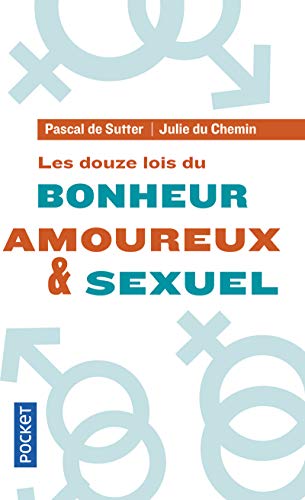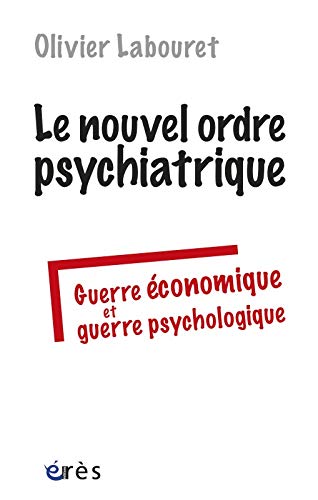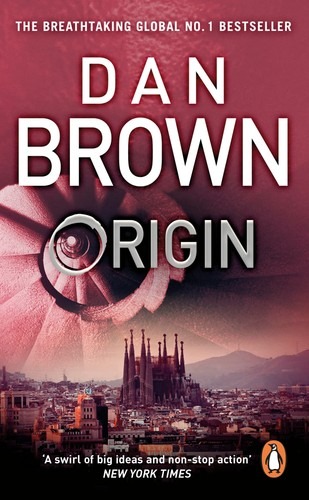Search Results for: exchange
Ink Blood Sister Scribe
Some books should never be opened.A spellbinding, edge-of your seat thriller, Ink Blood Sister Scribe follows a family tasked with guarding a trove of magical but deadly books, and the shadowy organisation that will do anything to get them back . . . even murder.____________Joanna Kalotay lives alone in the woods of Vermont, the sole protector of a collection of rare books: books that will allow someone to walk through walls or turn water into wine. Books of magic.Her estranged older sister Esther moves between countries and jobs, constantly changing, never staying anywhere longer than a year, desperate to avoid the deadly magic that killed her mother. Currently working on a research base in Antarctica, she has found love and perhaps a sort of happiness.But when she finds spots of blood on the mirrors in the research base, she knows someone is coming for her, and that Joanna and her collection are in danger.If they are to survive, she and Joanna must unravel the secrets their parents kept hidden from them - secrets that span centuries and continents, and could cost them their lives ...____________'A twisty and thrilling fantasy in which both the magic and the characters have real complexity, real shadows. If, like me, you're a fan of Holly Black and Leigh Bardugo, pick up this book at once.' Kelly Link, Get in Trouble'INK BLOOD SISTER SCRIBE is so many things at once: an adventure, a puzzle, a twisty thriller, and a tender romance. It is, she says, a magical book about the magic of books: I adored it.' Alix E Harrow, The Once And Future Witches
Les douze lois du bonheur amoureux & sexuel
Vous connaissez sans doute la loi de la gravitation ou la loi d'Archimède, mais saviez-vous que notre vie amoureuse et sexuelle est régie, elle aussi, par des lois universelles ? La plupart des femmes et des hommes se disent insatisfaits de leur vie amoureuse et sexuelle : la routine a pris le dessus. Julie du Chemin et Pascal de Sutter vous proposent de découvrir les douze lois qui vont changer votre vie, de mieux comprendre les mystères de l'amour, de réinvestir votre vie amoureuse sur le long terme et de cheminer, en pleine confiance, vers le bonheur sexuel, une ambition accessible à tous ceux qui souhaitent sincèrement l'atteindre. Pascal de SUTTER est docteur en psychologie et sexologue. Julie du CHEMIN est sexologue. About the Author Pascal De Sutter est docteur en psychologie et sexologue. Il enseigne à la faculté de psychologie de l'université de Louvain, en Belgique. Ses travaux de recherche portent sur la sexologie clinique et la psychologie politique. Il est aussi auteur de nombreux ouvrages à succès tels que La Sexualité des gens heureux, Les Nouveaux Psys, Ces fous qui nous gouvernent, La Mécanique sexuelle des hommes (2 tomes). Il anime également des émissions de sexologie sur M6 et RTL TVI. Julie Du Chemin est sexologue. Elle a fondé en 2014 l'Académie des arts de l'amour et, dans ce cadre, elle propose des conférences et des formations pour accompagner le développement personnel du couple et de la sexualité. Elle a également écrit Le Manuel d'une parfaite petite jouisseuse.
Factfulness
Factfulness: The stress-reducing habit of only carrying opinions for which you have strong supporting facts.When asked simple questions about global trends—what percentage of the world’s population live in poverty: why the world’s population is increasing: how many girls finish school—we systematically get the answers wrong. So wrong that a chimpanzee choosing answers at random will consistently outguess teachers, journalists, Nobel laureates, and investment bankers.In Factfulness, Professor of International Health and global TED phenomenon Hans Rosling, together with his two long-time collaborators, Anna and Ola, offers a radical new explanation of why this happens. They reveal the ten instincts that distort our perspective—from our tendency to divide the world into two camps (usually some version of us and them) to the way we consume media (where fear rules) to how we perceive progress (believing that most things are getting worse).Our problem is that we don’t know what we don’t know, and even our guesses are informed by unconscious and predictable biases.It turns out that the world, for all its imperfections, is in a much better state than we might think. That doesn’t mean there aren’t real concerns. But when we worry about everything all the time instead of embracing a worldview based on facts, we can lose our ability to focus on the things that threaten us most.Inspiring and revelatory, filled with lively anecdotes and moving stories, Factfulness is an urgent and essential book that will change the way you see the world and empower you to respond to the crises and opportunities of the future.
La littérature Algérienne
Quand on évoque la littérature algérienne, des noms comme Mouloud Feraoun, Mohamed Dib et d’autres encore surgissent tout de suite,
La littérature Algérienne
Quand on évoque la littérature algérienne, des noms comme Mouloud Feraoun, Mohamed Dib et d’autres encore surgissent tout de suite,
Le nouvel ordre psychiatrique : guerre économique et guerre psychologique
2 décembre 2008: se saisissant d'un fait divers, le chef de l'État fra nçais proclame le grand tournant sécuritaire de la psychiatrie. Car la crise économique historique ayant déferlé sur le monde quelques mois plus tôt nécessite coûte que coûte de changer les comportements et les mentalités. 5 juillet 2011: annoncée par le discours présidentiel, la loi relative «aux droits et à la protection» des personnes faisant l'objet de soin s psychiatriques ouvre enfin la possibilité de traiter de force à domi cile quiconque manifesterait un trouble. Liberté d'aller et venir, sûr eté, inviolabilité du corps humain, les droits humains fondamentaux se trouvent bafoués par une réforme dangereuse remettant en cause profon dément la confiance des patients et la déontologie des soignants. À l'heure où une politique d'austérité généralisée vient répondre à l' emballement insensé du système économique, le contrôle social de la «s anté mentale» des populations est ainsi assuré par la peur de la folie et de l'exclusion. Voilà comment la psychiatrie publique, dévoyée par le pouvoir en place, est en train de devenir l'instrument d'une persé cution d'État. Parce que l'ordre mondial néolibéral a besoin d'un homm e invulnérable pour prospérer, toute déviance comportementale ramenée à une défaillance individuelle doit être prévenue et traitée par la sc ience médicale. Aujourd'hui plus que jamais la guerre économique est u ne impitoyable guerre psychologique: profondément déshumanisant, le no uvel ordre psychiatrique est en marche. À nous d'enrayer sa folle fuit e en avant! Au sommaire: Chronique de la folie psychiatrique: Le nouvel ordre scientiste; Le no uvel ordre marchand; Le nouvel ordre sécuritaire; Grandeur et misère d e la résistance. La guerre économique: La crise financière; La crise s ociale; Le nouveau dressage comportemental; La guerre contre l'ennemi intérieur. La guerre psychologique: La psychiatrie comme système symbo lique; La psychiatrie comme système de propagande; Les mécanismes psyc hosociologiques de la soumission néolibérale; La grande dépression. Le sens insensé de l'histoire: La mondialisation de la perversion narcis sique; Le retour de l'eugénisme; La fin du temps; Éléments pour une al terpsychiatrie. From the Back Cover 2 décembre 2008 : se saisissant d'un fait divers, le chef de l'État français proclame le grand tournant sécuritaire de la psychiatrie. Car la crise économique historique ayant déferlé sur le monde quelques mois plus tôt nécessite coûte que coûte de changer les comportements et les mentalités. 5 juillet 2011 : annoncée par le discours présidentiel, la loi relative « aux droits et à la protection » des personnes faisant l'objet de soins psychiatriques ouvre enfin la possibilité de traiter de force à domicile quiconque manifesterait un trouble. Liberté d'aller et venir, sûreté, inviolabilité du corps humain, les droits humains fondamentaux se trouvent bafoués par une réforme dangereuse remettant en cause profondément la confiance des patients et la déontologie des soignants. À l'heure où une politique d'austérité généralisée vient répondre à l'emballement insensé du système économique, le contrôle social de la « santé mentale » des populations est ainsi assuré par la peur de la folie et de l'exclusion. Voilà comment la psychiatrie publique, dévoyée par le pouvoir en place, est en train de devenir l'instrument d'une persécution d'État. Parce que l'ordre mondial néolibéral a besoin d'un homme invulnérable pour prospérer, toute déviance comportementale ramenée à une défaillance individuelle doit être prévenue et traitée par la science médicale. Aujourd'hui plus que jamais la guerre économique est une impitoyable guerre psychologique : profondément déshumanisant, le nouvel ordre psychiatrique est en marche. À nous d'enrayer sa folle fuite en avant ! Olivier Labouret est médecin psychiatre en hôpital public. Il est président de l'Union syndicale de la psychiatrie, membre de la Ligue d
Shams de Tabriz, un soleil se levant de l’orient
Poète, philosophe, humaniste et grand spirituel soufi. Shams de Tabriz figure parmi les personnages qui ont su transcrire en or,
La Plus belle histoire de l’intelligence
" Une plongée passionnante et toujours accessible dans l'évolution de l'intelligence. "Les ÉchosL'intelligence a émergé avec la vie, elle s'est magnifiée avec l'espèce humaine... Grâce à elle, nous avons tout inventé. Au fil d'un dialogue fascinant, le grand spécialiste du cerveau Stanislas Dehaene et celui des neurones artificiels Yann Le Cun racontent, avec Jacques Girardon, cette longue aventure, des origines animales à nos jours, et s'interrogent sur notre futur. Les machines peuvent-elles nous dépasser ? Un livre qui change radicalement le regard que nous portons sur nous-mêmes.Stanislas Dehaene est chercheur en psychologie et en neurosciences cognitives, professeur au Collège de France.Yann Le Cun, professeur à l'université de New York et ancien chercheur aux Bell Laboratories, est le fondateur et le directeur du Centre de recherche en intelligence artificielle de Facebook.Jacques Girardon est journaliste et écrivain.About the AuthorStanislas Dehaene est chercheur en psychologie et en neurosciences cognitives, professeur au Collège de France, président du conseil scientifique de l'Éducation nationale et membre de l'Académie des sciences. Il dirige le centre NeuroSpin, l'un des plus grands centres internationaux d'imagerie cérébrale.Yann Le Cun, professeur à l'université de New York et ancien chercheur aux Bell Laboratories, est le fondateur et le directeur du Centre de recherche en intelligence artificielle de Facebook. Pionnier des réseaux de neurones, qui dotent les ordinateurs de la capacité d'apprendre, il est le chef de file du deep learning (" apprentissage profond "), sujet qu'il a enseigné en 2016 au Collège de France.Jacques Girardon est journaliste et écrivain. Il a notamment été grand reporter à L'Express et rédacteur en chef de Sciences et Avenir.
Origin: (Robert Langdon Book 5)
Sunday Times #1 Bestseller
New York Times #1 Bestseller
The spellbinding new Robert Langdon novel from the author of The Da Vinci Code.
'Fans will not be disappointed' The Times
Robert Langdon, Harvard professor of symbology and religious iconology, arrives at the Guggenheim Museum Bilbao to attend the unveiling of a discovery that “will change the face of science forever”. The evening’s host is his friend and former student, Edmond Kirsch, a forty-year-old tech magnate whose dazzling inventions and audacious predictions have made him a controversial figure around the world. This evening is to be no exception: he claims he will reveal an astonishing scientific breakthrough to challenge the fundamentals of human existence.
But Langdon and several hundred other guests are left reeling when the meticulously orchestrated evening is blown apart before Kirsch’s precious discovery can be revealed. With his life under threat, Langdon is forced into a desperate bid to escape, along with the museum’s director, Ambra Vidal. Together they flee to Barcelona on a perilous quest to locate a cryptic password that will unlock Kirsch’s secret.
In order to evade a tormented enemy who is one step ahead of them at every turn, Langdon and Vidal must navigate labyrinthine passageways of hidden history and ancient religion. On a trail marked only by enigmatic symbols and elusive modern art, Langdon and Vidal uncover the clues that will bring them face-to-face with a world-shaking truth that has remained buried – until now.
‘Dan Brown is the master of the intellectual cliffhanger’ Wall Street Journal
‘As engaging a hero as you could wish for’ Mail on Sunday
‘For anyone who wants more brain-food than thrillers normally provide’ Sunday Times
New York Times #1 Bestseller
The spellbinding new Robert Langdon novel from the author of The Da Vinci Code.
'Fans will not be disappointed' The Times
Robert Langdon, Harvard professor of symbology and religious iconology, arrives at the Guggenheim Museum Bilbao to attend the unveiling of a discovery that “will change the face of science forever”. The evening’s host is his friend and former student, Edmond Kirsch, a forty-year-old tech magnate whose dazzling inventions and audacious predictions have made him a controversial figure around the world. This evening is to be no exception: he claims he will reveal an astonishing scientific breakthrough to challenge the fundamentals of human existence.
But Langdon and several hundred other guests are left reeling when the meticulously orchestrated evening is blown apart before Kirsch’s precious discovery can be revealed. With his life under threat, Langdon is forced into a desperate bid to escape, along with the museum’s director, Ambra Vidal. Together they flee to Barcelona on a perilous quest to locate a cryptic password that will unlock Kirsch’s secret.
In order to evade a tormented enemy who is one step ahead of them at every turn, Langdon and Vidal must navigate labyrinthine passageways of hidden history and ancient religion. On a trail marked only by enigmatic symbols and elusive modern art, Langdon and Vidal uncover the clues that will bring them face-to-face with a world-shaking truth that has remained buried – until now.
‘Dan Brown is the master of the intellectual cliffhanger’ Wall Street Journal
‘As engaging a hero as you could wish for’ Mail on Sunday
‘For anyone who wants more brain-food than thrillers normally provide’ Sunday Times
Ways of Seeing
Based on the BBC television series, John Berger's Ways of Seeing is a unique look at the way we view art, published as part of the Penguin on Design series in Penguin Modern Classics. 'Seeing comes before words. The child looks and recognizes before it can speak.' 'But there is also another sense in which seeing comes before words. It is seeing which establishes our place in the surrounding world; we explain that world with words, but word can never undo the fact that we are surrounded by it. The relation between what we see and what we know is never settled.' John Berger's Ways of Seeing is one of the most stimulating and influential books on art in any language. First published in 1972, it was based on the BBC television series about which the Sunday Times critic commented: 'This is an eye-opener in more ways than one: by concentrating on how we look at paintings . . . he will almost certainly change the way you look at pictures.' By now he has. John Berger (b. 1926) is an art critic, painter and novelist.born in Hackney, London. His novel G. (1972) won both the James Tait Black Memorial Prize and the Booker Prize. If you enjoyed Ways of Seeing, you might like Susan Sontag's On Photography, also available in Penguin Modern Classics. 'Berger has the ability to cut right through the mystification of professional art critics ... he is a liberator of images: and once we have allowed the paintings to work on us directly, we are in a much better position to make a meaningful evaluation' Peter Fuller, Arts Review 'The influence of the series and the book ... was enormous ... It opened up for general attention areas of cultural study that are now commonplace' Geoff Dyer in Ways of Telling 'One of the most influential intellectuals of our time' Observer








